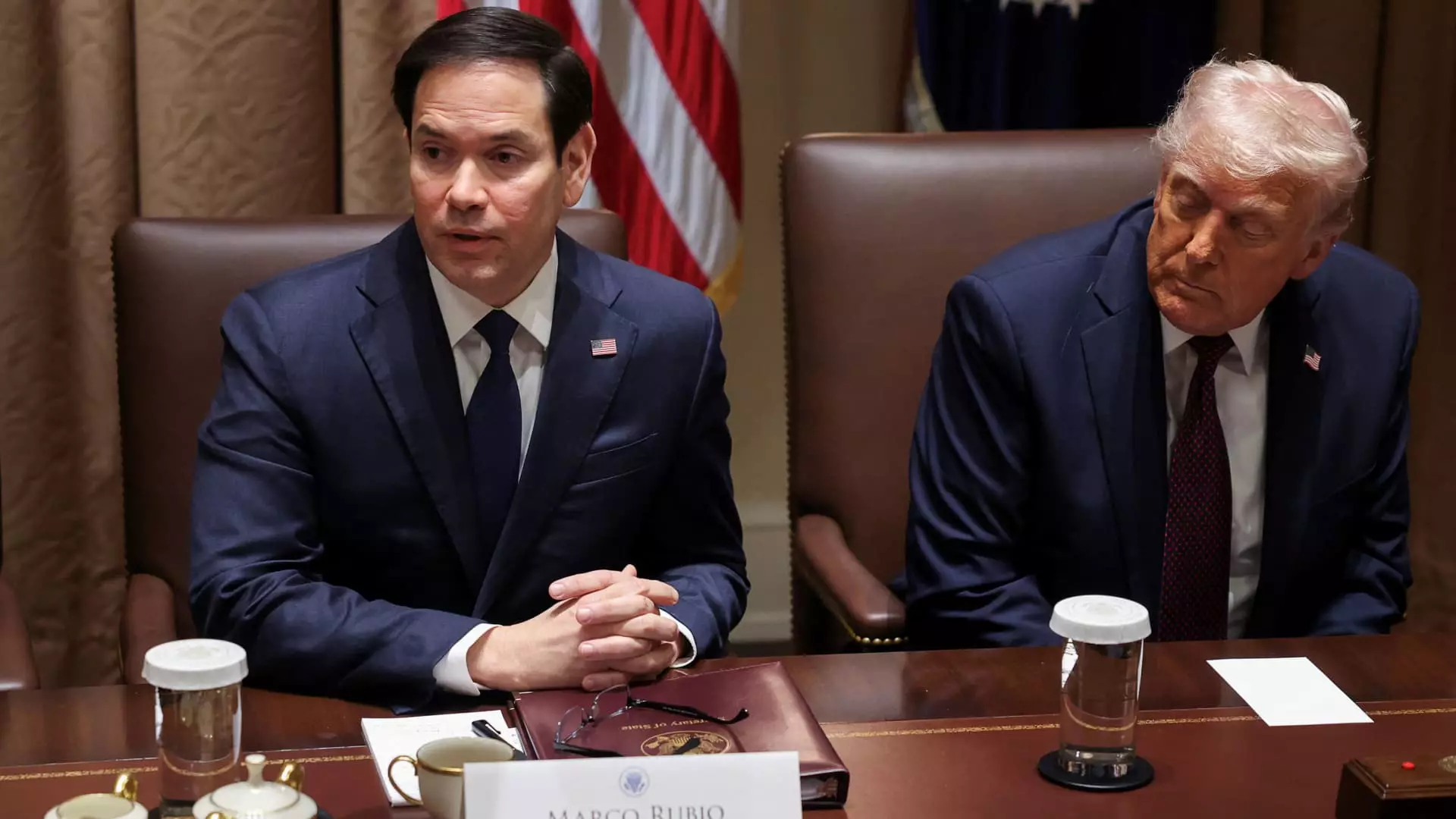In a move that could redefine American foreign policy, a draft executive order hinting at radical changes to the U.S. State Department has surfaced. This shambolic vision, prepared for President Donald Trump’s potential signature, is alarming in its implications. It promises a systematic dismantling of the very institutions that have long underpinned America’s diplomatic efforts. It is not merely an administrative overhaul; it poses a real threat to the fundamental values of diplomacy, humanitarianism, and international cooperation.
According to the draft, the proposed changes are framed as a “disciplined reorganization,” but this terminology barely scratches the surface of what is at stake. The strategic plan outlines the shuttering of American embassies across Southern Africa and a brutal reduction of the State Department’s focus on crucial issues such as human rights, democracy, and climate change. Agencies within the State Department dedicated to these vital aspects of diplomacy would essentially become casualty to an aggressive “America First” doctrine. Such an approach is not just a policy shift; it signals a dangerous retreat from global citizenship.
Consolidation: A Simplified View of Complex Diplomacy
The draft order goes even further, proposing to consolidate regional operations into four broad categories: Eurasia, the Mid-East, Latin America, and the Indo-Pacific. This sweeping consolidation belies a grave misunderstanding of global dynamics. Diplomacy is inherently nuanced; it cannot be effectively managed through a cookie-cutter model. Global relationships are built on context, and to strip these complex bilateral or multilateral relationships down to mere regional clusters is a recipe for miscalculation and failure.
Cutting U.S. diplomatic presence in Canada and other countries is particularly shortsighted. Historically, America’s relationship with its northern neighbor has been a cornerstone of its foreign policy, characterized by collaboration on trade, security, and environmental matters. Reducing engagement in such a critical context undermines decades of diplomatic work and could severely limit America’s influence in North America. The repercussions of this diplomatic neglect could manifest in unforeseen ways, potentially spurring nations to seek alliances elsewhere.
Elimination of Core Values: A Moral Void
This draft order is a stark portrayal of the prioritization of power over principle. By suggesting the termination of offices tasked with women’s issues, migration, and criminal justice, among others, the administration dangerously signals that humanitarian values are expendable in the quest for ‘projecting strength.’ One has to wonder: what kind of strength can be derived from ignoring the plight of the marginalized and the oppressed? This is not strength; it is cowardice masquerading as policy.
Moreover, the elimination of the Foreign Service Officer Test in favor of a direct alignment with the president’s vision for foreign policy raises troubling questions about the integrity of diplomatic appointments. The new criteria for evaluating candidates emphasize ideological conformity over competency. This could pave the way for a diplomatic corps composed not of skilled negotiators or seasoned foreign policy experts, but of yes-men and sycophants. Such degradation of professionalism within the State Department could have dire consequences for American standing in an increasingly complex international landscape.
The Stench of Disconnection
The timing of this proposal is particularly alarming. As the world grapples with pressing global challenges, from climate change to humanitarian crises, withdrawing from international engagement speaks to a profound disconnection from reality. The undercurrents of nationalism and isolationism that permeate this draft order distract from the other pressing issues that require diplomatic finesse and collaborative action.
As citizens and global advocates rally against these chilling developments, it becomes imperative to recognize the responsibility of the American public in holding leaders accountable. This draft executive order is not merely a bureaucratic maneuver; it is a dangerous ideological statement that invites scrutiny and resistance from those who believe in the sanctity of diplomacy, human rights, and the interconnectedness of our global community. The pushback against such drastic measures must be swift and unwavering, for the alternative is a fundamental regression not just for American diplomacy but for the very fabric of international relations.


Leave a Reply